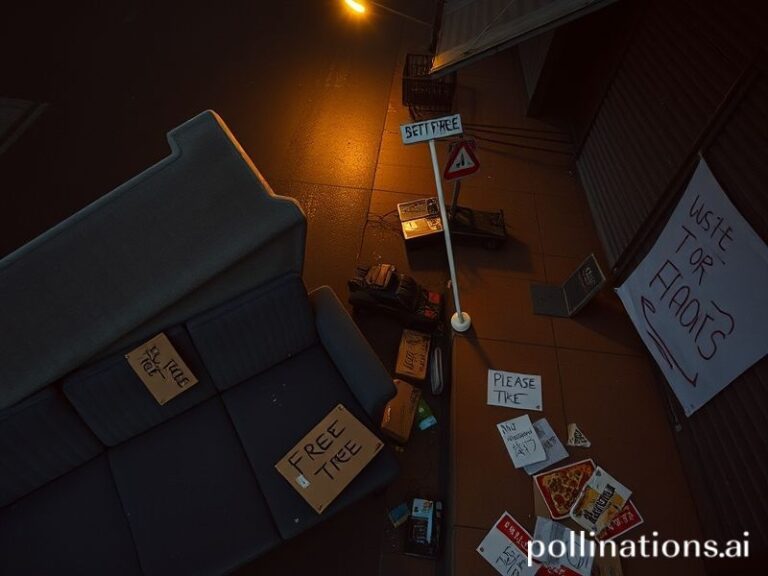Astros Win 6-3: How a Houston Box Score Echoes from Lagos to Kyiv
In Houston, under a roof that cost more than the GDP of several Pacific island nations, the Astros played baseball last night. That sentence already contains enough contradictions—indoor baseball, billion-dollar air-conditioning, a sport once exported as a metaphor for American innocence now wrapped in retractable steel—to make any foreign correspondent reach for the antacid and the expense report at the same time.
For the uninitiated, the Astros are a Major League Baseball team whose recent history reads like a geopolitical thriller: accusations of electronic espionage, stiff sanctions, tear-stained apologies, and a redemption arc so efficient it could be packaged and sold to emerging-market PR firms. Last night’s 6-3 win over whichever hapless franchise is currently playing the role of “international trade deficit with Texas” served as yet another reminder that, in 2024, even a children’s pastime can become a soft-power projection device—just with more garlic fries.
From Tokyo to Tegucigalpa, the Astros’ box score scrolled across ticker apps beside crypto crashes and grain-export data. A salary cap analyst in Singapore noted that the team’s payroll could bankroll three Moldovan parliaments, while a sports-bar owner in Lagos programmed the game onto a dusty projector because satellite rights are cheaper than Nigerian league football. Somewhere in Rotterdam, a logistics manager checked the livestream between container-ship arrivals, quietly calculating that the distance from home plate to center field (408 feet) is exactly 0.00000007% of the Suez Canal’s length—useful trivia when your next charter gets wedged sideways.
Baseball’s front office likes to call this “global reach,” a phrase that sounds less like cultural diplomacy and more like a pharmaceutical warning label. Indeed, the sport’s international academies have become a Cold-War-in-Cleats operation: Venezuela, the Dominican Republic, and South Korea serve as talent mines where teenagers sign for signing-bonus sums that dwarf their villages’ annual budgets. If they make it to Minute Maid Park—and statistically, they won’t—their debut becomes a feel-good segment sandwiched between ads for fighter jets and cloud-storage solutions. Soft power, meet hard cash.
The irony, of course, is that while Houston cheers José Altuve’s 2-for-4 night, the city itself is rehearsing its own version of extra innings. Rising sea levels—brought to you by the same fossil-fuel sector that funds half the ballpark’s luxury boxes—mean that by the time today’s toddlers reach season-ticket age, the retractable roof may need to double as an ark. Climate refugees already outnumber relief pitchers worldwide, yet the jumbotron keeps flashing a cheery cartoon orbit, reminding fans that the team is “Shooting for the Stars,” an unintentional punch line to anyone watching from the International Space Station as hurricanes crop-dust the Gulf.
Still, the ritual persists. In Warsaw, a data engineer rewinds the highlight of a 97-mph fastball because its spin rate curves like the yield on Polish bonds. In Cairo, a barista streams the radio feed at 3 a.m. local time; the crack of the bat blends with the call to prayer, producing an accidental remix that Spotify will never monetize. And in Kyiv, a displaced kid wearing a hand-me-down Astros cap—smuggled in by an aid convoy labeled “non-lethal humanitarian sports equipment”—takes batting practice with a broomstick and a taped tennis ball. No roof required.
By the final out, the stadium’s LED panels exploded in star-spangled fireworks that could be seen from low orbit, or at least from the upper deck where the cheap seats still cost more than a month’s wages in 42 countries. The crowd sang “Deep in the Heart of Texas” with the fervor of people who believe clapping four times in rhythm can somehow keep the darkness at bay. Maybe it can; maybe that’s the point. Somewhere, a delegate at the U.N. General Assembly wondered if multilateral trade negotiations would go smoother if everyone just broke for the seventh-inning stretch.
Game over. Earth keeps spinning—slightly wobblier than before, but still capable of a 6-4-3 double play. Play ball, planet. The next pitch is already warming up.







